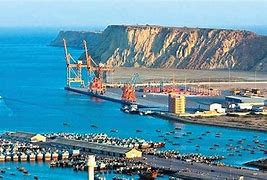The Chairman United Business Group (UBG) Standing Committee on Maritime Affairs, Communications & Gwadar Development, Tariq Haleem has said that Pakistan needs a new strategy for transforming its seaports into regional trans-shipment hubs. He said this will help Pakistan gain access to Central Asia Regional Economic Cooperation which is a collection of 12 neighboring countries. Moreover, he added that this connection will create a movement of more than millions of containers and tons of other cargoes every year.
KARACHI: Chairman United Business Group (UBG) Standing Committee on Maritime Affairs, Communications & Gwadar Development, Tariq Haleem has said that Pakistan needs a new strategy to rationalize port charges, introduce incentive schemes, simplify the Federal Board of Revenue’s transshipment rules and harmonize regulations for the transshipment industry.
This will help to transform our seaports into regional transshipment hubs. This should be done with the help of the various stakeholders of our seaports. Tariq Haleem said that transforming KPT into a transit state of the art facility will also allow us to better connect to countries in the Central Asia Regional Economic Cooperation, which is a collection of 12 neighboring countries.
South Asia Pakistan Terminals Limited (SAPTL), with initial investments of about Rs 100 billion can, at the moment, be the most suitable instrument in creating a transshipment hub and promoting cooperation with our CAREC partners. Pakistan needs to revisit the entire strategy of a transshipment hub.
Some Commonwealth of Independent States (CIS) countries have also shown their interest and have started using our ports for transit trade in a small way. MOMA and MOC should approach all 12 CIS countries and provide them suitable facilities with low handling costs for transit trade.
It may be noted that imports and exports of these 12 CIS countries are more than about US 450 billion dollars. This trade between landlocked countries should be promoted to be routed through Karachi Port and Port Qasim, as well through Gwadar Port when the port is fully operational.
This sort of trade volume would mean a movement of more than millions of containers and millions of tons of other general cargoes per year. The capacities of the ports of Pakistan will need to be enhanced on a war footing to handle these high volumes of cargoes.
He said that transshipment laws need to be amended by FBR in order to permit Container Freight Station (CFS) operations on an urgent basis. UBG suggests that a common user CFS station should be made within the KPT, with a minimum area of about 200 acres (with the option to expand as per requirements).
This should, preferably, be close to SAPTL so that transportation and handling costs are reduced. This will not only provide work for different stakeholders at the ports, but also jobs for much of our country’s workforce. Tariq Haleem said that we have 39 companies with stevedoring licenses, out of which quite a few are sitting idle; an increase in volumes of cargoes will provide opportunities to all of them.
In addition to this, ship agency, freight forwarding, logistics, trucking, customs clearing, warehousing and other port related business will flourish. Overflow cargoes at the ports will also benefit off-dock activity.
He said that when Singapore started transshipment activities, Mercedes Benz established a state of the art, in-house facility for stock & sale for their spare parts etc. Spare parts, as well as other items, worth trillions of dollars have been stocked and sold from here.
Malaysia started transshipment activities and they provided Stock & Sale suitable laws and space, last year about US 3.2 billion dollars of cargoes were attracted to Malaysia for stock-and-sale. Hitachi is also carrying out Stock & Sale activities worth billions of dollars at Abu-Dhabi. Since many decades Toyota is carrying out Stock & Sale from Brussels.















